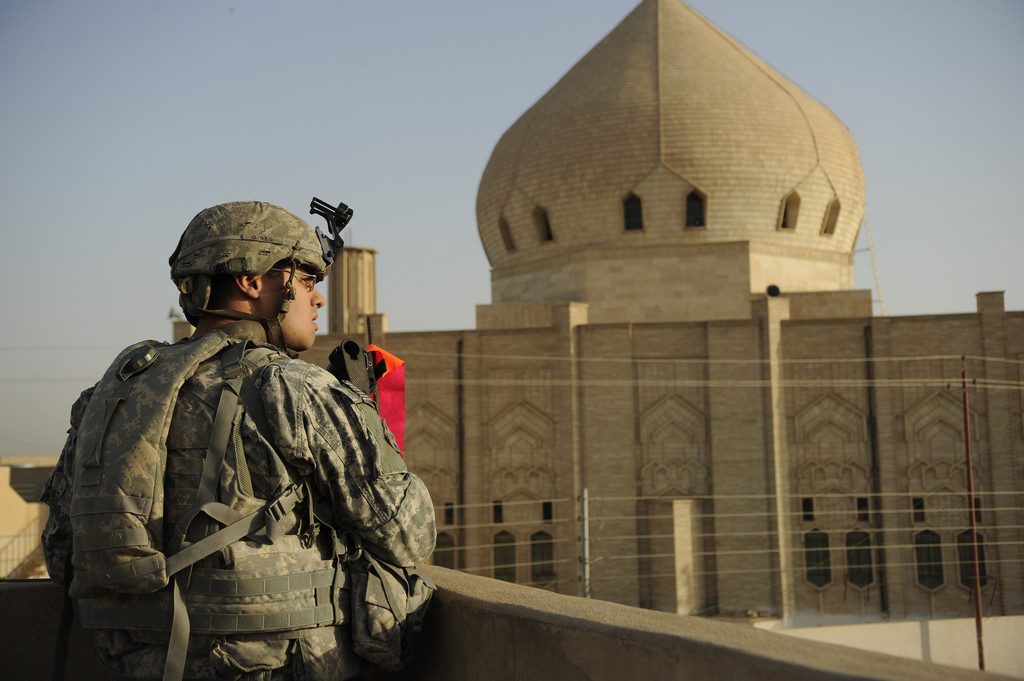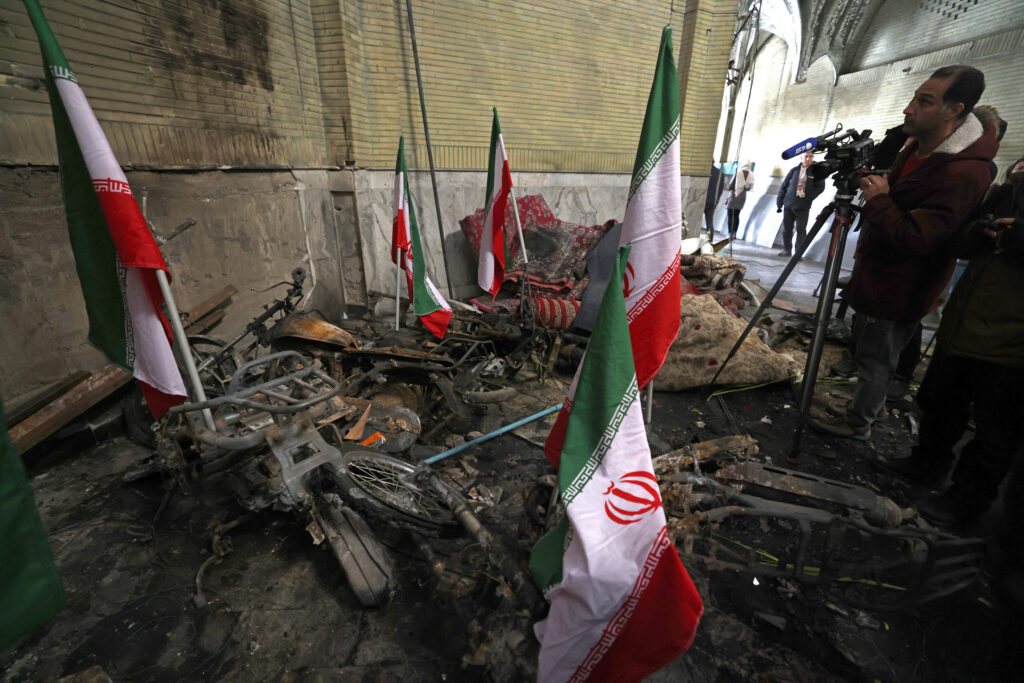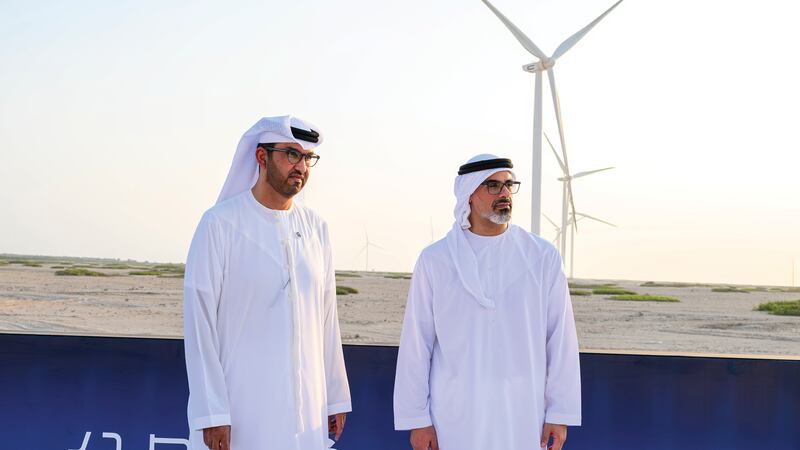By Fanar Haddad
Just over three years after stunning the world with their takeover of much of Iraq and their establishment of ‘the Caliphate’, the so-called Islamic State (IS) has been ejected from their de-facto Iraqi capital Mosul. Much to the delight of people across Iraq, Prime Minister Haider al-Abadi announced the long awaited liberation of Iraq’s second largest city on Sunday. The liberation of Mosul this week is as momentous an event as its fall back in 2014. However, while the destruction of ‘the Caliphate’ is a cause for celebration, there can be no underestimating the scale of the challenges that lie ahead.
The IS surge of the summer of 2014 led many to question the very concept of Iraq and the viability of the Iraqi state. However, in hindsight and contrary to all expectations, the cataclysmic events of that year may prove to have been the trigger for a sorely needed Iraqi rebirth.
As Iraq seemed on the brink of total destruction in June 2014, the country’s highest clerical authority, Grand Ayatollah Ali al-Sistani issued a call to arms with a fatwa urging Iraqis to volunteer to join Iraq’s security agencies to fight IS. The unprecedented mass mobilization that ensued may not have been what Sistani had in mind given all the paramilitary activity involved. Nevertheless it gave Iraq the morale-boost needed to effectively wage this war. Otherwise, without this self-belief in Iraq and in Iraqis, all the airpower and foreign assistance in the world would not have sufficed to fully meet the challenge of IS.
Not all the changes of the past three years have been benign nor does the legacy of mass mobilization come without complications. Nevertheless, there is room for guarded optimism as to Iraq’s future. The sheer scale of the devastation wrought on by the war against IS has seen instances of previously unthinkable cross-sectarian and cross-ethnic cooperation. In addition to which, the beginnings of a new mythology of Iraqi nationalism can be discerned (at least in the Arab parts of Iraq). It is a mythology of a wounded Iraq that falls in 2014 only to be resurrected from the ground-up by the selfless sacrifice of Iraq’s various military and paramilitary formations or so the narrative goes.
Accurate or not, this renewed sense of confidence in Iraq and the assertive Iraqi patriotism that comes with it gives Iraq a small, fragile and time-limited window of opportunity. The goodwill generated through the war effort, the sense of public ownership of the war and, by extension, the reinvigoration of Iraqi nationalism amongst Arab Iraqis provide Iraq’s political classes with the raw material with which to construct a more sustainable social and political compact. Unfortunately, the calibre and track record of Iraq’s political classes means that it is likely they will squander this opportunity.
Even the best of political leaderships would struggle with the gravity of the monumental challenges that lie ahead of Iraq. Most immediately, there is the immense human displacement (approximately 3 million internally displaced Iraqis) and colossal physical destruction (some estimate a bill of USD$100 billion). These are urgent challenges that are key to Iraq’s future economic and political stability and ultimately key to avoiding the conditions that gave rise to IS and their predecessors in the first place. Again, the Iraqi political classes’ abysmal record over the past 14 years raises doubts as to whether they will be up to the gargantuan task ahead of them. Making matters worse is that this all comes at a time when Iraq is relatively cash-strapped and with its economy still hostage to sluggish oil prices and foreign assistance.
Then there are issues of justice. Outside of Iraq, the war is often portrayed as a Sunni-Shia issue but the reality within Iraq is far more complex. There is no exaggerating the extent to which the IS phenomenon has divided Sunni communities and areas. As such, the problem of human rights violations and the oft-repeated need for ‘reconciliation’ are as much a Sunni-Sunni issue as a Sunni-Shia one. Here, again, there is little cause for optimism given the shortcomings and handicaps of Iraq’s judiciary.
In other words, for all the hope and goodwill generated by the progress made in the war against IS, there remain immense challenges that Iraq is less than well equipped to deal with. Structural issues that contributed to the rise of IS remain as evidenced by the deepening crisis of Sunni political representation, emboldened Kurdish aspirations to independence and the ongoing anti-government protests that have continued despite wartime jingoism and mobilization. For Iraq to really take advantage of today’s favourable dynamics, its political classes need to formulate the unity, vision and strength of purpose that they have singularly failed to display over the past 14 years. Likewise, regional and international powers will have to play a more benevolent role with an eye to stabilization in Iraq and Syria an equally tall order.
Then there is the continuing threat of IS. Here lies a danger that goes far beyond Iraq. With the loss of their de-facto Iraqi capital and the impending loss of their Syrian base of Raqqa, we may be seeing the destruction of ‘the Caliphate’ that is the end of IS-as-state-building-project. However, IS-as-insurgency has a long way to go yet. Iraq and Syria will likely continue to bear the brunt of a decentralised and diffused (perhaps reincarnated) IS. Nevertheless the possibility that the long-anticipated risk of ‘blowback’ will be accelerated by the collapse of ‘the Caliphate’ is a real one. Far from being immune to this, Southeast Asia is predicted by some to be the next IS battleground. It is also worth remembering that the appeal of IS is not based on the appeal of a charismatic person that can be killed off or a structure that can be torn down. Rather, it is the appeal of an idea and neither the liberation of Mosul nor the destruction of ‘the Caliphate’ are likely to diminish that appeal amongst a certain subculture that will continue to pose a threat from Iraq to Singapore and beyond.
Fanar Haddad is Senior Research Fellow at the Middle East Institute National University of Singapore. He is the author of Sectarianism in Iraq: Antagonistic Visions of Unity. https://nus.academia.edu/FanarHaddad; @fanarhaddad





